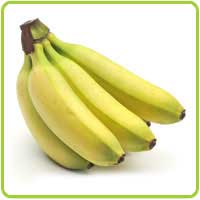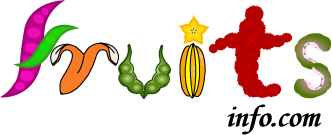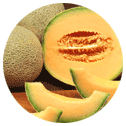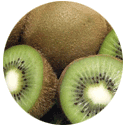Banana Health Benefits And Nutrition Values
The banana is the third most popular fruit after apples and oranges. It is a healthy fruit, rich in potassium, 11 other minerals and 6 vitamins. Since the average banana contains a 467 mg of potassium and only 1 mg of sodium, it may help to prevent high blood pressure and protect against atherosclerosis. The Archives of Internal Medicine confirms that bananas help to prevent heart disease. In addition to these cardiovascular benefits, the potassium found in bananas may also help to support bone health. The banana is a distant cousin to ginger, turmeric, and cardamom, and is botanically classified as a berry.

Nutrient |
Amounts/Selected Serving |
DV% |
|---|---|---|
Calcium |
11.3mg |
1% |
Iron |
0.6mg |
3% |
Magnesium |
60.8mg |
15% |
Phosphorus |
49.5mg |
5% |
Potassium |
806mg |
23% |
Sodium |
1.3mg |
0% |
Zinc |
0.3mg |
2% |
Copper |
0.2mg |
9% |
Manganese |
0.6mg |
30% |
Selenium |
2.3mcg |
3% |
Fluoride |
5.0mcg |
~ |
Nutrients |
Amounts/Selected Serving |
DV% |
|---|---|---|
Calories |
200(837 kJ) |
10% |
Carbohydrate |
186(779 kJ) |
~ |
Fat |
6.2(26.0 kJ) |
~ |
Protein |
8.2(34.3 kJ) |
~ |
Alcohol |
0.0(0.0 kJ) |
~ |
Nutrients |
Amounts/Selected Serving |
DV% |
|---|---|---|
Cholesterol |
0.0mg |
0% |
Phytosterols |
36.0mg |
~ |
Nutrients |
Amounts/Selected Serving |
DV% |
|---|---|---|
Total Fat |
0.7g |
1% |
Saturated Fat |
0.3g |
1% |
Monounsaturated Fat |
0.1g |
~ |
Polyunsaturated Fat |
0.2g |
~ |
Total trans fatty acids |
~ |
~ |
Total trans-monoenoic fatty acids |
~ |
~ |
Total trans-polyenoic fatty acids |
~ |
~ |
Total Omega-3 fatty acids |
60.8mg |
~ |
Total Omega-6 fatty acids |
103mg |
~ |
Nutrient |
Amounts/Selected Serving |
DV% |
|---|---|---|
Vitamin A |
144IU |
3% |
Vitamin C |
19.6mg |
33% |
Vitamin D |
~ |
~ |
Vitamin E(AlphaTocopherol) |
0.2mg |
~ |
Vitamin K |
0.2mg |
1% |
Thiamin |
0.2mg |
5% |
Riboflavin |
0.2mg |
10% |
Niacin |
1.5mg |
7% |
Vitamin B6 |
0.8mg |
41% |
Folate |
45.0mcg |
11% |
Vitamin B12 |
120.0mcg |
0% |
Pantothenic Acid |
0.8mg |
8% |
Choline |
22.0mg |
~ |
Betaine |
0.2mg |
~ |
Nutrients |
Amounts/Selected Serving |
DV% |
|---|---|---|
Total Carbohydrate |
51.4g |
17% |
Dietary Fiber |
5.9g |
23% |
Starch |
12.1g |
~ |
Sugars |
27.5g |
~ |
Nutrients |
Amounts/Selected Serving |
DV% |
|---|---|---|
Protein |
2.5g |
5% |
Nutrients |
Amounts/Selected Serving |
DV% |
|---|---|---|
Alcohol |
0.0g |
~ |
Water |
169g |
~ |
Ash |
1.8g |
~ |
Caffeine |
0.0mg |
~ |
Theobromine |
0.0mg |
~ |
- THE CRAB CONCERN
- BENEFITS OF BANANA
- BANANA IN DIABETEIC
- BANANAS IN CHRONIC DISEASE
- BANANA IN DIAHERRA
If you have diabetes, you must pay close attention to the amount andtype of carbohydrates you eat. Using the hormone insulin, carbs get broken down by your body and converted into glucose, which givesyou energy and fuels for your cells for action. Diabetics have trouble with insulin and can have unusually high levels of glucosecirculating throughout the body. Eating too much of carbohydrates, and nearly all fruits contain high amounts of carbs, can dump moreglucose than your diabetic body.
The health benefits based on banana are plenty. Bananas are low in calories, but high in fiber, vitamin B6, vitamin C and potassium. The fiber keeps you full and satisfied. B6 is a mood enhancer. Vitamin C boosts your immune system, and potassium controls your blood pressure.
Bananas are safe for diabetics. However, how ripe the banana is makes a difference. Researchers reporting of "Diabetic Medicine" found that participants in a study who ate overripe bananas had a fairly high glycemic response, meaning blood sugar levels were raised, demanding the use of more insulin. Those who ate bananas that had not fully ripened had a lower glycemic response. By contrast, neither kind of banana produced a blood sugar response as high as plain white bread. The researchers said up to 90 percent of the carbs in an underripe banana come from starch, but when it ripens the carbs are mostly free sugars.
We know that there are a lot of taboos in the diet for patients with chronic kidney disease by intake of salt, protein as well as yolk. banana is rich in nutrition and besides this, it has function of easing constipation, so it greatly loved by all the people. Although banana is so salutary, some patients with Chronic Kidney Disease are not allowed to eat too many bananas.
The person who have Chronic Kidney Disease with Chronic nephritis and renal insufficiency are forbidden to take too many bananas as much as possible. Banana contains large amount of magnesium, potassium,sodium and calcium. At same time by ingesting too much of them will cause disproportionality in our body and thus affects our health. Moreover, patients with Chronic Nephritis and renal failure usually have symptoms of swelling and high blood pressure which have close relationship with the intake of sodium. Therefore, they should limit intake of sodium salt. However, banana is abundant in sodium salt, so eating too many banana means ingesting too much sodium. For patients with Chronic Nephritis and renal failure, if they eat too many bananas, their symptoms of swelling and high blood pressure will be aggravated and thus leading to the deterioration of their disease. In this light, patients with Chronic Nephritis and renal failure should avoid eating too many bananas.
Easily digested bananas are a good choice to settle an upset digestive system. The high level of potassium in bananas helps to replace electrolytes lost by severe bouts of to absorb liquid in the intestines and thus move stool along diarrhea. Bananas are also rich in pectin, a soluble fiber that helps smoothly. Bananas also contain a good amount of insulin, another soluble fiber. Insulin is a prebiotic substance that promotes the growth of beneficial bacteria in the intestinal system.
PERSON WHOM CANNOT CONSUME BANANA:
- KIDNEY DISEASE
- GASTRIC AND INTESTINAL DISEASE
- RENAL FAILURE
The patients of kidney disease should have the diet of low potassium,low salt, low phosphorus, low fat, low protein, and high vitamin.In general, it is considered that, banana is full of nutriments, fragrant and sweet. Every one can eat it without taboo. But the kidney disease patients can not eat banana. Banana contains relatively much sodium salt, which is harmful for edema and hypertension of the kidney disease patients. So, Kidney Disease Patient Can not Eat Banana.
People should control the intake of banana strictly in daily life. Magnesium and potassium contained in banana are rather beneficial to the human health. However, if people eat bananas excessively, the excessive intake of magnesium and potassium can greatly increase the content of magnesium and potassium in the blood. Thus, the balanced proportion of potassium, sodium, calcium, magnesium and other elements inside the human body can be disturbed to endanger the human health. In addition, the excessive intake of banana can decrease the secretion of gastric acid and affect the gastric and intestinal functions. Therefore, people should eat bananas moderately.
Banana is rich in Potassium. Due to the decline of GFR and renal tubular function of Renal Failure patients, their kidneys have a lower ability to deal with Potassium. If they take food rich in Potassium, it will easily cause low heartbeat or even heart arrest. Therefore, Renal Failure patients had better not eat bananas.















